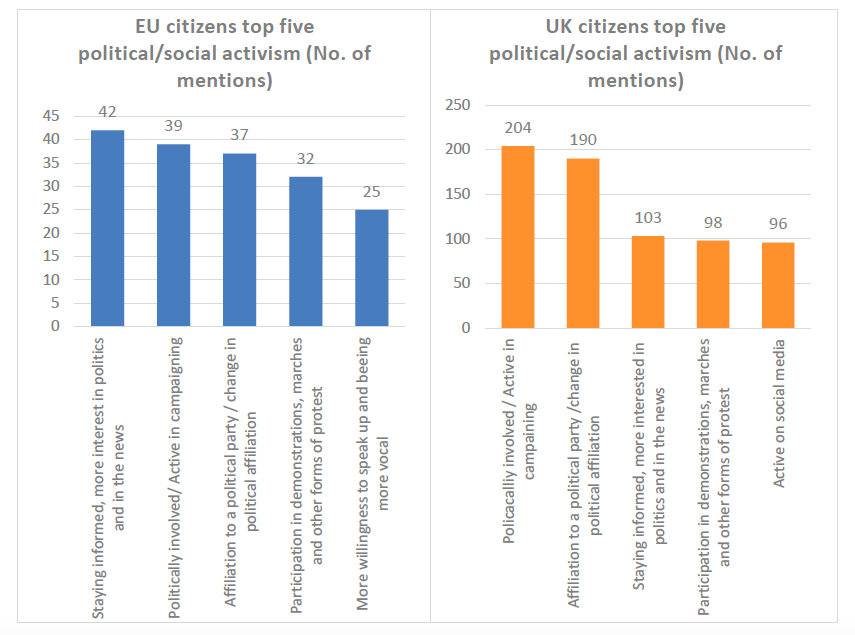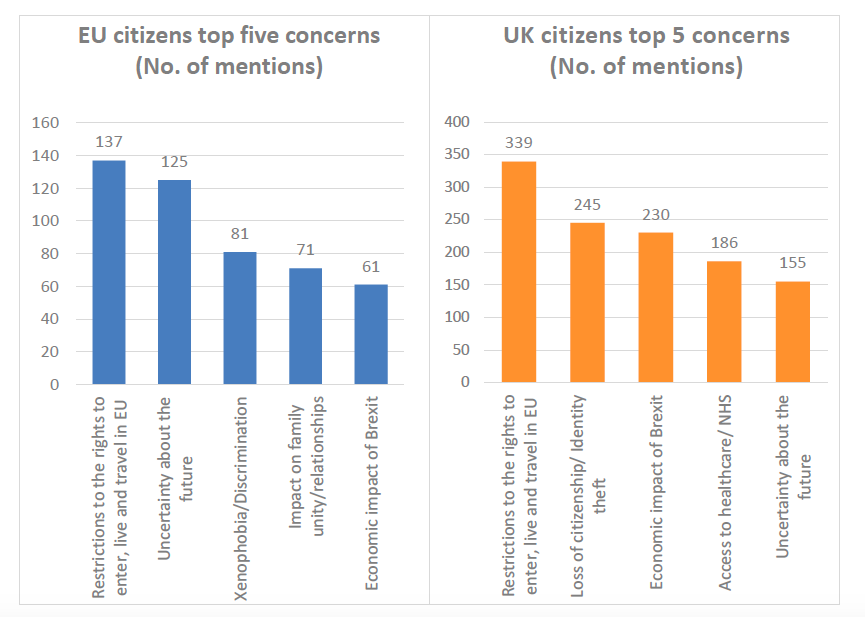People becoming more socially and politically active
A survey by European Citizens Action Service (ECAS), a pressure group based in Brussels, found that people most impacted by Brexit have become more socially and politically engaged after the EU referendum.
The survey was launched on 29 March 2017, the day the UK delivered the letter starting the exit process from the European Union. The aim was to undersand the concerns of citizens directly impacted by the decision, EU nationals in the UK and British citizens living elsewhere in the EU.
The poll received 1,670 responses: 71% from Britons and 28% from people from the rest of Europe. The vast majority of EU respondents live in the UK. They are primarily from Spain (22%), Portugal (11.7%), Italy (9.8%), Germany (9.6%), Poland (9.2%) and France (8.9%). More than half (54.6%) of the UK respondents live in the EU, especially in France (33.9%), Spain (8.4%), Belgium (2.8%), The Netherlands (2%) and Germany (1.51%).
While exploring concerns related to the potential loss of rights caused by Brexit, the survey found a positive trend. 58% of EU respondents and 77% of UK’s have become more socially active since the vote last year.
A key change is that people keep themselves more informed about politics. This is mainly because they no longer trust the media and politicians. EU citizens aged 16-31 and 32-47, and UK citizens aged 48-63 especially felt more interested in politics and in the news, as well as a desire of higher political engagement or active campaigning. Many said to have joined a pro-EU political party or changed political affiliation in the past year. They attended demonstrations and campaigned on social media.
Among EU citizens, there is more willingness to speak up about Brexit and politics (especially among those aged 48-63). UK respondents have become more active online (especially people over 64 and currently living outside the UK).

Source: ECAS, 2017.
In general, the majority of EU respondents were aged 16-39 (44.4%) and 40-47 (26%). Most of UK respondents were over 56 (24.2% aged 56-63 and 22.9% aged 64-71, while only 12,9% was below 40). This composition of the groups, of course, influenced the results.
In terms of rights imperiled by Brexit, the most cherished was the right to live in another EU country. Restrictions to freedom of movement were the top concern for both EU and UK who participated in the poll.
Besides free movement, EU citizens feel anxious about the implications of Brexit on their future and worry about not being discriminated against on grounds of nationality, age, beliefs, disability or sex. Responses of EU citizens displayed a sense of fear of xenophobia, discrimination and hostile attitudes towards foreigners from the UK. Another area of concern was the impact of Brexit on mixed families and on relationships at large.
As regards UK citizens, some worry about the economy and access to healthcare in other EU countries. Many describe the current situation as a case of ‘identity theft’ because they feel their European identity has been stolen after the vote without their consent.

Source: ECAS, 2017.
Claudia Delpero
Photo via Pixabay.





